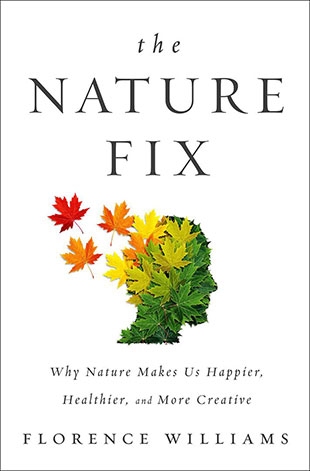"Growing up in the dense, vertical habitat of a prewar apartment building, I was drawn to the verdant, magnetic acres of New York's Central Park. Starting in middle school, I went there most days and every weekend, riding a rusty Panasonic bike or walking, skating or sunbathing while tethered to a Walkman. We are animals, and like other animals, we seek places that give us what we need. Given the opportunity, children will decamp to tree houses and build forts, wanting spaces that feel safe but with easy access to open runaround areas. We work hard to make our homes and yards a certain way, and when we can afford to, we pay considerably more for residences or hotel rooms right on the beach, or the pastoral ninth hole, or a quiet, tree-lined street. We all want our starter castles on the corner of Prospect and Refuge. Experts tell us these habitat preferences are remarkably consistent across cultures and eras.
"Yet until recently psychologists and neuroscientists didn't take these affinities very seriously. 'Studying the impacts of the natural world on the brain is actually a scandalously new idea,' Richard Louv, author of the 2008 bestseller Last Child in the Woods, told me. 'It should have been studied thirty to fifty years ago.' So why now? Probably because we're losing our connection to nature more dramatically than ever before. Thanks to the confluence of demographics and technology, we've pivoted further away from nature than any generation before us. At the same time, we're increasingly burdened by chronic ailments made worse by time spent indoors, from myopia and vitamin D deficiency to obesity, depression, loneliness, and anxiety, among others.
"In parts of East Asia, which suffers perhaps the greatest epidemic of indoor-itis, rates of nearsightedness in teenagers surpass 90 percent. Scientists used to attribute myopia to book-reading, but it instead appears to be closely linked to time spent living like naked mole rats, away from daylight. The sun primes the retina's dopamine receptors, and those in turn control the shape of the developing eye. We are learning about what this rift from the outdoors is doing to our retinal cells, but what about our minds?
"We have gained much since the dawn of the Internet, but many experts argue we've also grown more irritable, less sociable, more narcissistic, more distracted and less cognitively nimble. We can't blame all our malaises on a separation from nature, but our complaints reveal some fraying of psychological resilience. There are times when we could all be a little less reactive, a little more empathetic, more focused and more grounded. That's where a nature dose can help, and many of the researchers say they can prove it."
